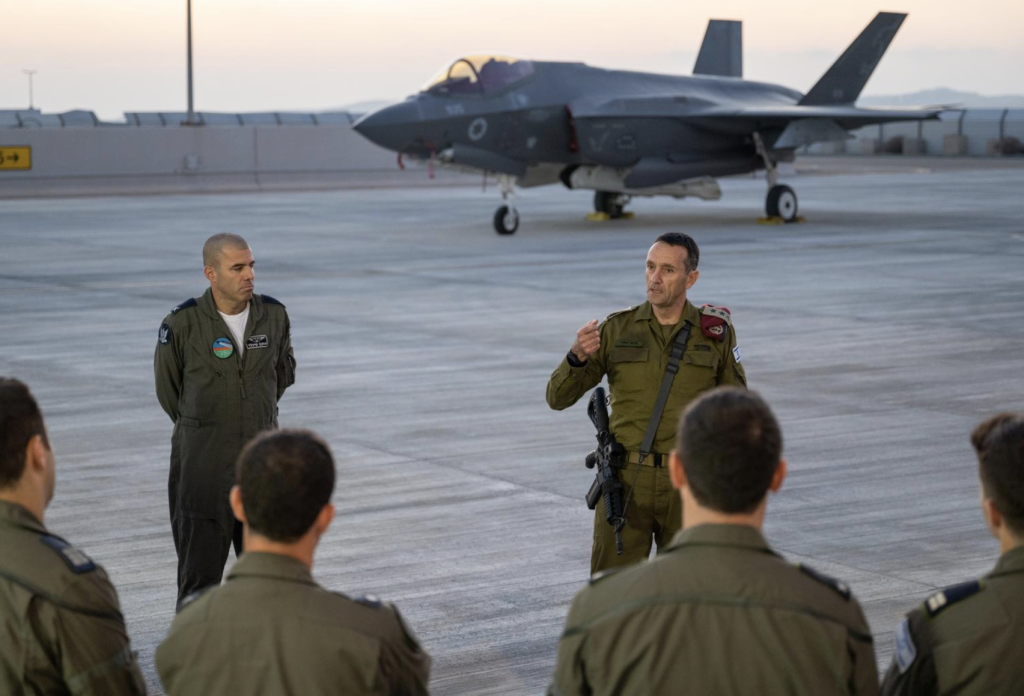
Israel Chief of Staff Herzi Halevi went to Israel’s sprawling Nevatim air base in the Negev to visit the pilots and air crews that played a key role in defending Israel when Iran attacked it with 350 drones and missiles. It is now believed that around 120 of these were ballistic missiles, 170 were drones, and 30 were cruise missiles. US Central Command said it intercepted 80 of the drones, and US naval ships downed six ballistic missiles.
The Israeli air force intercepted numerous drones and worked in cooperation with other countries and militaries in the region. This was an unprecedented level of cooperation made possible by the IDF conducting joint training with the US, UK, France and other countries over the last several years. “The Israel Defense Forces — together with the United States Central Command; the British Armed Forces; the French Armed Forces, and other partners — operated together in real-time — in the air, on the ground and at sea,” Halevi said. Israel has a name for its operation responding to the Iranian attack: Iron Shield.
The IDF believes that Iran’s “attack has created new opportunities for cooperation in the Middle East,” Halevi noted. He also said Israel is now assessing the situation and is at a high-state of readiness for what may come next. “We will choose our response accordingly.” Israel must now decide if it wants to respond to the Iranian attack and if so, how it will respond. The Iranian attack unfolded from multiple directions, including from the Iran-backed Houthis in Yemen, and Hezbollah also attacked Israel on April 13 and April 14. This means that Israel continues to face the multi-front war that Iran has sought to put in place over the last year. Iran has operationalized its proxies and allies in the region in the wake of the Hamas attack on Israel on October 7. The attack on April 13-14 was another watershed moment in this conflict, because it illustrates the force that Iran could mobilize in terms of missiles and drones and showcased the air defenses that Israel and other countries could bring together at the right place and time.
At the same time as Israel is considering a response to Iran’s attack, the Israel Defense Minister convened discussions regarding a possible operation in the southern Gaza city of Rafah. “Minister Gallant discussed a series of measures to be taken in preparation for operations in Rafah, with an emphasis on the evacuation of civilians and the expansion of activities related to the delivery of food and medical equipment to Gaza,” Gallant’s office said on April 15. His office also noted that the Director General of the Ministry of Defense and Head of COGAT were at the meeting. COGAT is the IDF’s branch that has been dealing with the humanitarian aid issue in Gaza and coordinating with various organizations that provide aid. Gallant has made it clear that Israel is focused on stabilizing the aid situation and bringing more aid to northern Gaza, an apparent prelude to being able to move displaced people out of Rafah.







